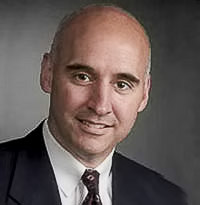Then said Jesus unto him [Peter], Put up again thy sword into his place: for all they that take the sword shall perish with the sword. Thinkest thou that I cannot now pray to my Father, and he shall presently give me more than twelve legions of angels? But how then shall the scriptures be fulfilled, that thus it must be? Matt 26:52-54
Central to the Christian faith is the unfathomable reality that Jesus Christ, the Son of God, our Creator, allowed Himself to be abused, struck, mocked, scourged and crucified for His people. He willingly died to set us free. In our shame and horror we may be tempted to look away. God bids us look upon Him who was pierced. Zech 12:10. We cannot be set free from the darkness of our own minds without acknowledging the reality that the best man who ever lived was put to an unjustified, undeserved and all too awful death. It was our sins that placed Him there. Yet He did it willingly and gladly because it was the will of His Father and because of the great love that He has for us.
In the above Scripture from the Book of Matthew we find the account, also echoed in each of the other gospels of Mark, Luke and John, of the few remaining hours that our Lord and Master spent with his disciples just before He suffered. He spent the evening celebrating the Passover with them, but He alone knew what lay before him.
How human were His disciples! They squabbled among themselves, wanting to know which of them was the most important, the most faithful, the most deserving. Luke 22:24. He overlooked all that and instructed them in the ways of the kingdom instead. He didn’t just talk the talk: He set aside his outer garments and took the form of a servant, washing each of their feet in turn. John 13:5. He instituted the communion supper in which He dined with them (and now with us) in the kingdom. Matt 26:26-29.
In all these things His greatest desire was to fulfill the will of His Father. John 15:10-15. He told Peter, who was about to betray Him in the most unimaginable way possible, that He had been praying for him and that He still loved him, and that Peter still had a place in His kingdom. Luke 22:31-32; John 21:15-17. Everything that the Savior did during this most critical phase in His life was for the benefit and blessing of His children.
So when we consider the above statement by our Lord, we cannot help but note that He had the right, the absolute right, to call upon His Father and receive deliverance through the ministration of angels and not suffer the things that were about to come to pass. It is testified in Scripture that a single angel, in a single night, was able to destroy 185,000 armed men of the armies of the Assyrian King Sennacherib encamped about the walls of Jerusalem. Isaiah 37. We cannot imagine what more than 12 legions of angels could do when unleashed to fight on behalf of God! The earth would tremble and all would be consumed. Someday, when Christ returns, we will see such power and majesty. Matt 24:29-31.
And yet, Christ says, if I were to do that; if I were to call upon my Father for such deliverance, which would most surely come; how then shall the Scriptures be fulfilled?
Our Lord had a much larger view than His own personal safety and comfort. His desire to do His Father’s will was paramount. Jesus endured the cup of wrath that was set before Him by His Father, rather than fighting against it as Peter had done, so that the Scriptures would be fulfilled.
While the Lord Jesus Christ had many scriptures in mind when He spoke of those things that must be fulfilled, none appear to be more poignant than Isaiah 50. In this chapter, written some 700 years before the coming of our Savior, we read:
“Wherefore, when I came, was there no man? when I called, was there none to answer? Is my hand shortened at all, that it cannot redeem? or have I no power to deliver? behold, at my rebuke I dry up the sea, I make the rivers a wilderness: their fish stinketh, because there is no water, and dieth for thirst. I clothe the heavens with blackness, and I make sackcloth their covering. The Lord GOD hath given me the tongue of the learned, that I should know how to speak a word in season to him that is weary: he wakeneth morning by morning, he wakeneth mine ear to hear as the learned. The Lord GOD hath opened mine ear, and I was not rebellious, neither turned away back. I gave my back to the smiters, and my cheeks to them that plucked off the hair: I hid not my face from shame and spitting.” Isa 50:2-6
Here we see a prophecy of the humiliation and mistreatment that would take place upon the God who wrought terrible judgment upon Egypt. This Scripture identifies the Lord Jesus Christ as the one who brought powerful displays of might and power upon the false gods of Egypt as He redeemed His people Israel.
The Lord Jesus, in His preincarnate form, was the one who turned the water to blood and killed the fish in the Nile; the one who brought hosts of plagues (frogs, lice, hail with fire, locusts, darkness); the one who executed judgment on every household by killing the firstborn from Pharoah to the smallest maid. It was Christ who dried up the Red Sea, allowing the children of Israel to pass on dry land while swallowing up Pharaoh’s host.
And yet, when Jehovah God came to earth in the incarnation of Christ, His mighty power and glory was shown in an even greater way. Jesus did not bring destruction: He brought healing. He did not turn water to blood, but to wine. He did not kill the fish, He multiplied it for thousands to eat and have their fill. He did not bring darkness, He brought light. He did not bring plagues, He healed plagues. He did not kill the firstborn, He brought the firstborn to life.
Christ did good everywhere He went. He cured the leper; He gave sight to the blind; He preached deliverance to the captives; He gave hearing to the deaf; He raised the dead; He forgave sins.
For which of these works did they strike Him? For which of these good deeds did they spit upon Him? He says through the prophet, “I gave my back to the smiters.” I turned, willingly allowing myself to be struck. “I gave my cheeks to them that plucked out the hair.” “I hid not my face from shame and spitting.”
Can we not see how despitefully our Lord God, the great Creator who clothes the heavens with darkness, who wrought so many mighty works in Egypt, was mistreated? We should cover our heads in shame. This man, who brought peace and healing, was rejected of men. Isaiah 53:3. They did absolutely everything they could think of doing to Him; He was scourged, which by itself often resulted in death or permanent maiming. John 19:1. He was mocked, spit upon, beaten, and given a painful crown of thorns to wear. Matt 27:27-31. He was crucified, after being forced to cruelly carry his own instrument of torture and death to the place of Golgotha. John 19:17. He was lifted up and mocked: “If you are the Son of God, come down and we will believe you!” they jeered. Matt 27:40. And the greatest suffering of all: God the Father turning His back on His only begotten Son. Matt 27:45-46. Jesus endured an eternity of suffering and punishment for all of our sins while He hung on the cross and darkness covered the earth.
How grateful we should be that the Lord of Glory set aside his crown to redeem us. Heb 12:2. How thankful we should be that He brought us deliverance, rather than seeking His own deliverance. He willingly did all the will of His Father in “bringing many sons to glory.” Heb 2:10. How willing we should be to lean upon and trust this mighty One!
It is true that Jesus died – he commended His spirit into the hands of His Father and gave up the ghost. Luke 23:46. But on the third day He emerged triumphant from the grave, raised from the dead, alive for evermore. Rev 1:18. How glorious is our Champion who died, never to die again, and who ever lives to make intercession for us!
Isaiah 50 concludes with these verses:
Who is among you that feareth the LORD, that obeyeth the voice of his servant, that walketh in darkness, and hath no light? let him trust in the name of the LORD, and stay upon his God. Behold, all ye that kindle a fire, that compass yourselves about with sparks: walk in the light of your fire, and in the sparks that ye have kindled. This shall ye have of mine hand; ye shall lie down in sorrow. Isaiah 50:10-11
Our Lord Jesus Christ, during His suffering, walked in darkness. He voluntarily became sin who knew no sin. He gave His back to the smiters to bear the righteous judgment of His Father for our sakes.
If we from time to time also must walk in darkness, feeling the weight of sorrow and tribulation or not knowing which path to take as we follow the Lord, our Savior tells us to “trust in the name of the LORD, and stay upon his God.” This we should gladly do for His sake.
But so often we don’t. Instead, we find ourselves attempting to kindle our own light and walk by our own understanding and in our own righteousness. In this we are little different from Peter, who drew his sword to fight against the powers of darkness in the garden. Just as Christ warned Peter in Matthew, He warns us in Isaiah: if we strike our own path, we will be burned and “lie down in sorrow.”
So instead of striking our own light, let us trust this great One who loved us and died for us and endured the darkness for us. Our salvation from eternal ruin came with a heavy cost. It was a cost that our Lord Jesus paid freely and gladly. Because of this, we can trust that with that, He shall surely bless us and keep us during our own journey as we walk with Him, even if we must, from time to time, walk in darkness.



